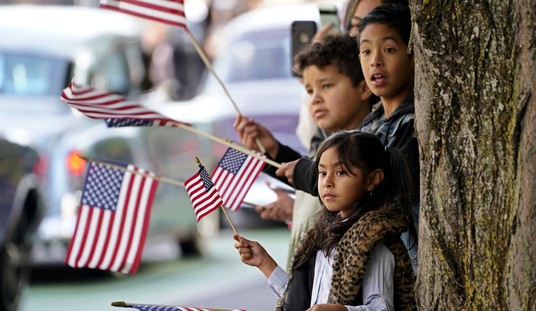Democrats have started spinning that they have a big comeback in the works when voters go to the polls two weeks from today. If so, that seems to have escaped the notice of Gallup, which sees almost no movement in the past two weeks in either registered voter preferences or their likely voter turnout model. In both cases, the GOP lead is exactly what it has been — and besides, it ignores a major component of modern elections:
Gallup’s tracking of the generic ballot for Congress finds Republicans leading Democrats by 5 percentage points among registered voters, 48% to 43%, and by 11- and 17-point margins among likely voters, depending on turnout. This is the third consecutive week the Republicans have led on the measure among registered voters, after two weeks in September when the parties were about tied. …
If the elections were held today and roughly 40% of voters turned out — a rate typical in recent years — Gallup’s Oct. 7-17 polling suggests Republicans would win 56% of the vote — 8 points greater than their support from registered voters, and 17 points ahead of Democrats, at 39%. If turnout is significantly higher, Republicans would receive 53% of the vote (a 5-point improvement over their registered-voter figure), and the Democrats, 42%.
The likely voter estimates at both turnout levels have been consistent over the past three weeks.
In other words, there has been no great Democratic comeback. Their base will probably turn out well. Democrats make up around 35% of the population, and getting 42% of the vote in a high-turnout model already presupposes a good base activation.
But that’s simply not enough to win the midterms, something that Republicans discovered the hard way in 2006 and 2008. National elections are won in the middle, and this year, independents are both motivated and breaking hard to the GOP. That comes in part from disillusion caused by the radical nature of the Democratic agenda the past two years, the failure of Democrats to address the economic problems in the US (especially jobs), and the almost-total focus from Republicans on fiscal restraint and government overreach. That message wins the middle, as Democrats should know, since they campaigned on the exact same agenda in the 2006 midterms, as well as scandals that had rocked the GOP.
Gallup notes that voting patterns have shifted in the last two weeks prior to previous midterms, but in one sense, it may already be too late. Early voting has become a major factor in elections, with some voters casting ballots as early as two weeks ago. By the time Democrats manage to build any momentum at all, they will have missed a substantial number of voters who have already made their choice. They may have already missed their window for engagement.








Join the conversation as a VIP Member